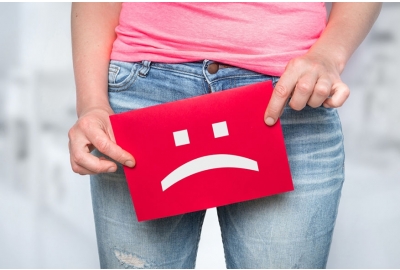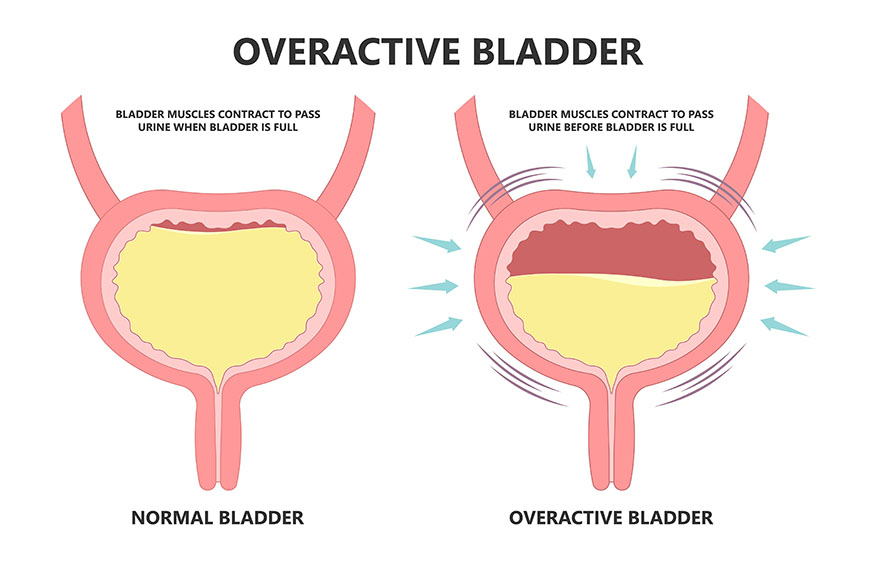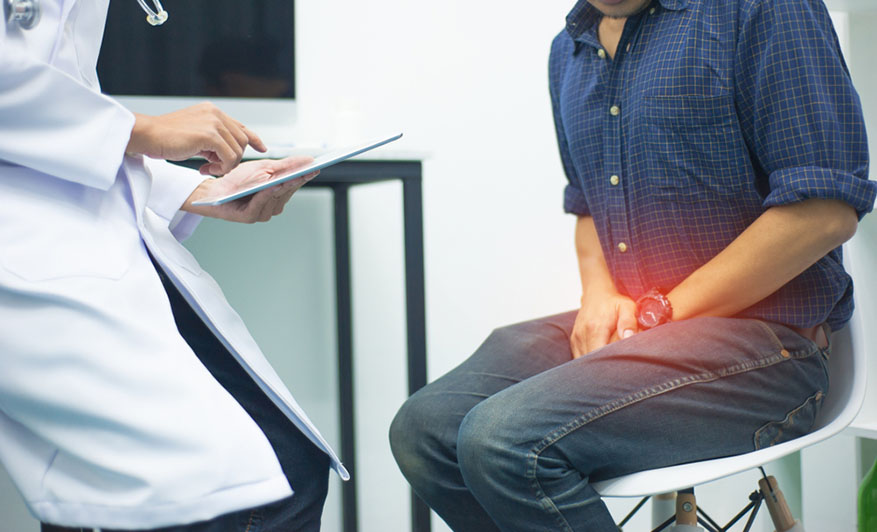
Why Can’t I Control My Bladder?

Source: andriano.cz/Shutterstock.com
“Ugh! Why can’t I control my bladder?” This is something those of us living with urinary incontinence often ask ourselves.
Loss of bladder control is something many people deal with. You may be tempted to ignore it, but it can strongly indicate that something else is going on. Anxiety and frequent urination often go hand-in-hand. Whether you are experiencing stress incontinence, a urinary tract infection (UTI), or weakened pelvic floor muscles after pregnancy, loss of bladder control can affect your entire life.
At Sofia & Grace, we want you to know what might be causing incontinence and what you can do about it. We also offer a range of products to help you manage your symptoms.
Urinary Incontinence
Think of urinary incontinence as a glitch in your urinary system: kidneys, bladder, ureters and urethra that help to store, filter and expel waste from your body.
When your urethral sphincter muscle opens up, urine flows freely from your bladder. You can make it to the bathroom on time when your system works correctly, but urinary incontinence is the result if it doesn’t operate as it should.
Shop Incontinence Products for Women
Types of Urinary Incontinence
There are several types of urinary incontinence, and you must know what type you have so your doctor can develop a solid treatment plan.
Stress Incontinence
This is a type of physical stress that happens when your pelvic floor muscles are weakened after pregnancy for women or prostate surgery for men. Anxiety can trigger a sudden rush of urine that your pelvic floor muscles aren’t strong enough to hold in.
Urge Incontinence
Urge incontinence is characterized by the intense urge to urinate. Overactive bladder (OAB) is often the culprit. You can have OAB for many reasons, including low estrogen levels after menopause. Even medications and body weight can cause OAB, so many variables are at play.

Source: Pepermpron/Shutterstock.com
Overflow Incontinence
Overflow incontinence is the bladder’s inability to get empty when you use the toilet, so the little bit that is left leaks out over time. This often happens to people with diabetes, multiple sclerosis (MS) or who’ve had a stroke.
Mixed Incontinence
Mixed incontinence is a mix of several core issues that lead to incontinence. For example, you could have both OAB and stress incontinence. It is crucial that you identify your triggers for you to know what causes your mixed incontinence.
Who Gets It?
Incontinence happens to many people, not just older folks. It is often linked to menopause and pregnancy, which both can cause women’s pelvic muscles to weaken. Men who’ve had prostate cancer surgery or who have an enlarged prostate also get it.

Source: Wasan Tita/Shutterstock.com
If you have certain chronic health conditions, your likelihood of developing urinary incontinence is even higher.
How Urinary Incontinence Gets Diagnosed
Your doctor will be able to diagnose your urinary incontinence. This often starts by answering questions. Then, your doctor might give you a physical exam and do one or more of these tests: order a bladder ultrasound, get urine samples, get a cystoscopy, perform a stress test or pad test or do urodynamic testing.
Treatments for Urinary Incontinence
Sofia & Grace offers a range of comfortable and discreet incontinence products for women to help them confidently get through the day.
You might need lifestyle changes, including scheduling bathroom trips, performing Kegel exercises, practicing bladder training and maintaining a healthy body weight. Your doctor might prescribe medications such as oxybutynin or fesoterodine. Vaginal inserts might be necessary for women since they reduce stress incontinence by compressing the urethra. Neuromodulation devices, bulking agents and sling procedures might be required for more severe cases of urinary incontinence.
In Conclusion
Urinary incontinence is not a normal part of aging and should be taken seriously. Speak with your doctor about your concerns, and don’t be afraid to try out some of our incontinence products to manage your symptoms until you find a solution.